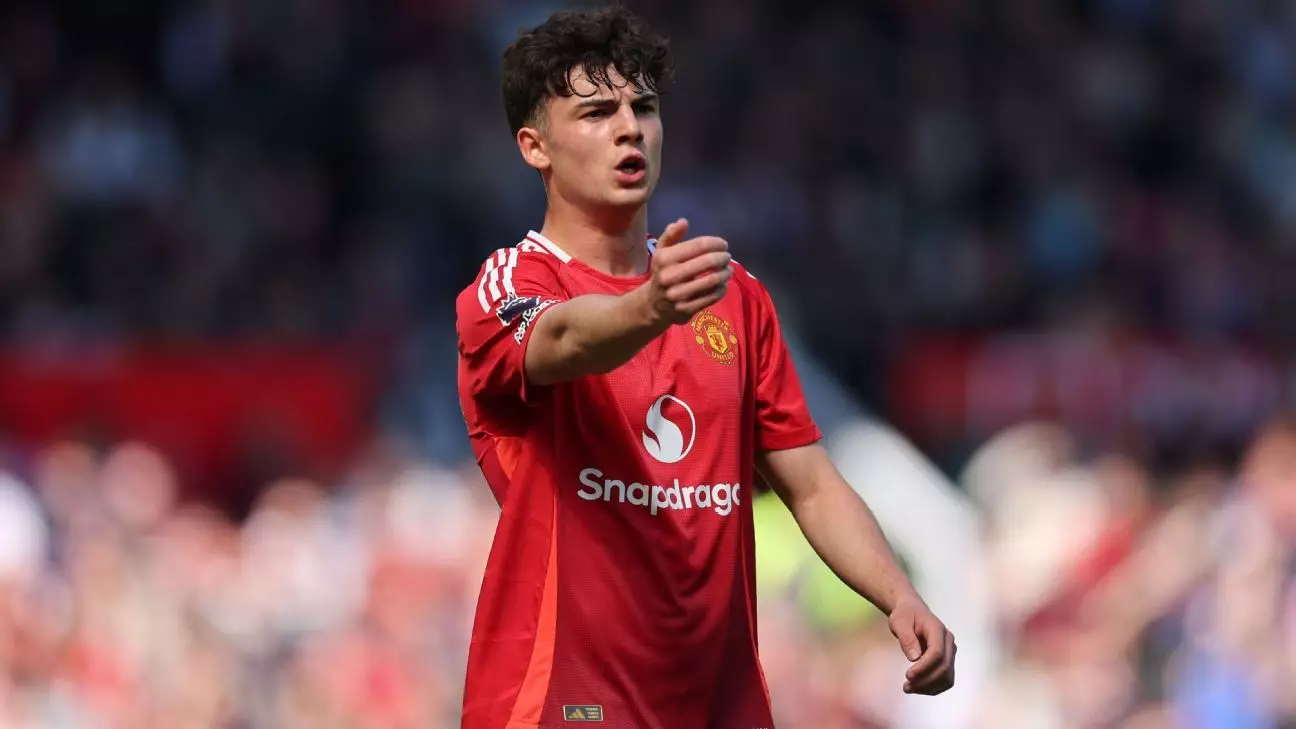In what has become a tumultuous season for Manchester United, the Europa League now stands as the club’s sole hope for salvageable glory. With a disappointing performance against Wolves culminating in a 1-0 loss at Old Trafford, the Premier League has been relegated to a mere backdrop for a team in disarray. Each defeat seems to emphasize the struggles that lace the team’s fabric, yet amidst this disappointment lies a flicker of hope embodied by emerging talents like Tyler Fredricson.
The gravity of the current situation is undeniable. With a staggering 15 league defeats so far, the specter of relegation – a fate once thought impossible for a club of United’s stature – looms ominously. Nevertheless, it is perhaps in these difficult times that creativity and opportunity flourish, especially for the club’s younger prospects. Under guidance from coach Ruben Amorim, who has taken to rotating his squad due to injuries and a demanding schedule, the landscape appears ripe for nurturing fresh talent.
Emerging Talent in Tough Times
Enter Tyler Fredricson, a name previously overshadowed by seasoned players, who stepped onto the pitch against Wolves and showcased a resilience rarely seen in players of his age. The 20-year-old defender, handed his first senior start, personified the revitalization of hope for United supporters looking for a silver lining amidst the gloom. His performance, marked by positional acumen and composure under pressure, provides a beacon of optimism that this institution can still produce top-notch talent, even when adversity strikes.
Fredricson’s introduction to senior football highlighted not just his individual skill, but also the club’s commitment to developing youth talent. He was forceful in defense, displaying tenacity as he thwarted a Wolves counterattack and demonstrated an eagerness to contribute offensively. Much like other academy graduates before him, Fredricson represents a possibility that United can reverse its fortunes by placing their trust in young and untested players. This is a critical juncture; the challenge of youth offers an enticing avenue toward reclaiming the club’s storied legacy.
A Culture of Resilience
The environment at Manchester United, despite the prevailing negativity, echoes a culture of resilience. Players such as 18-year-old Harry Amass and 17-year-old Chido Obi also make for compelling stories, adding depth to the narrative that this club still nurtures future stars. While Amorim’s post-match remarks reflected the disappointment of a lost opportunity, they simultaneously recognized the promising bursts of talent that may one day transform the fabric of Manchester United. His acknowledgment of the youth players reinforces a foundational belief: that even when the chips are down, bright minds can be cultivated.
Moreover, the reality that many senior players have underperformed cannot be overstated. For instance, Rasmus Højlund’s inability to find the back of the net in almost 30 hours of football brings forth serious concerns about the team’s striking options. Yet, Amorim’s remarks suggest that the burden of scoring should not fall singularly on Højlund’s shoulders. Instead, it is indicative of a broader issue within the team; a collective failure to convert opportunities into goals. This unnerving trend not only highlights why the club finds itself in its current predicament, but also underscores the pressing necessity for revitalization.
Learning and Adapting for the Future
The landscape ahead for Manchester United is precarious, punctuated by a competitive league environment and the constant pressure of performance. With five matches remaining in the season, the specter of an embarrassing finish haunts the club. Yet, the pressing issues also offer opportunities for reflection and innovation. Amorim must navigate these choppy waters carefully, encouraging both his veterans to reclaim their swagger and his youngsters to embrace the responsibility that comes with opportunity.
The pathway towards success likely involves continued integration of young talent along with a reassessment of the existing squad dynamics. Building confidence among these fledgling players can be pivotal in revamping not just the team’s spirit but its fortunes as well. The Europa League may represent a temporary lifeline, but the cultivation of inward growth through developmental tactics could express a more sustainable answer to the challenges United faces.
In the end, this season might not just be dismissed as a failure; rather, it can serve as a crucible for talent and rebirth. The losses, while hard to swallow, may provide invaluable lessons, paving the road to recovery for Manchester United. Through adversity, they may well find their strengths—both in emerging talents and in persevering as a historic football institution.

Leave a Reply